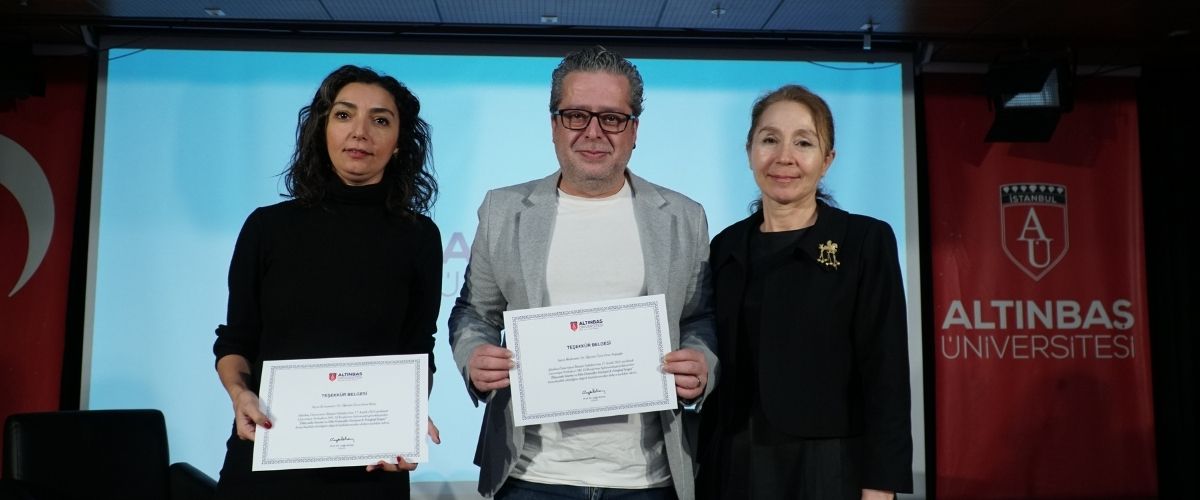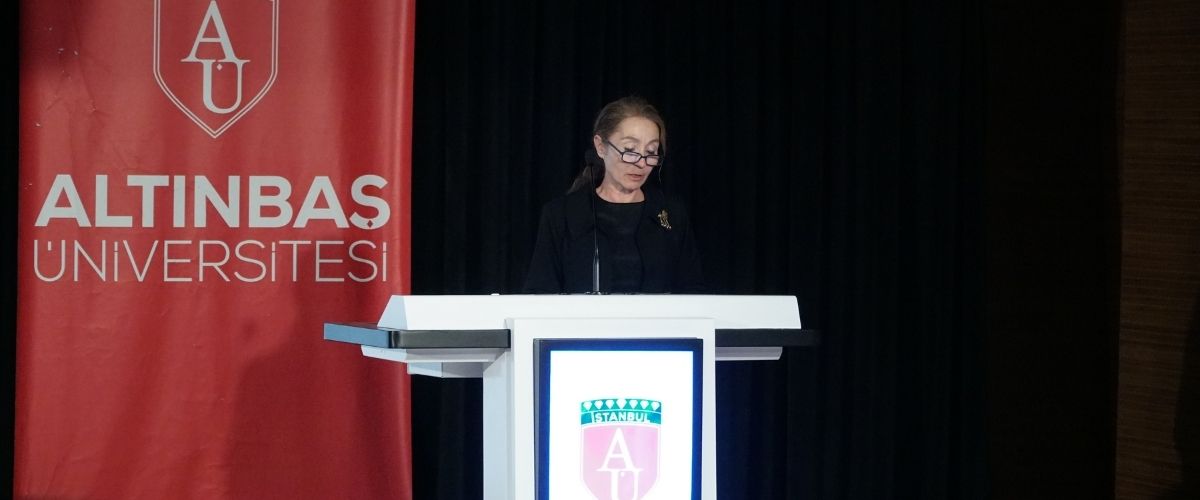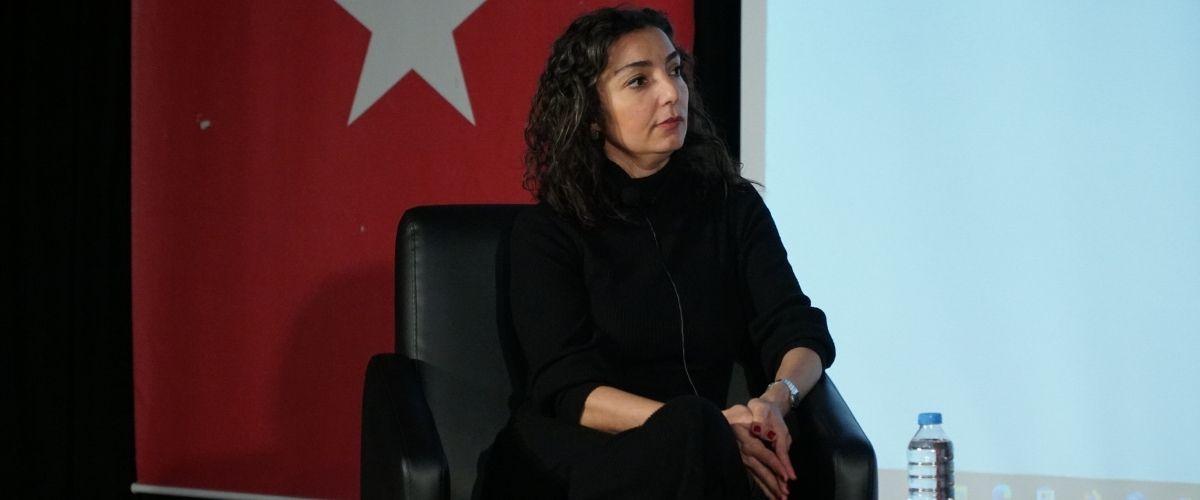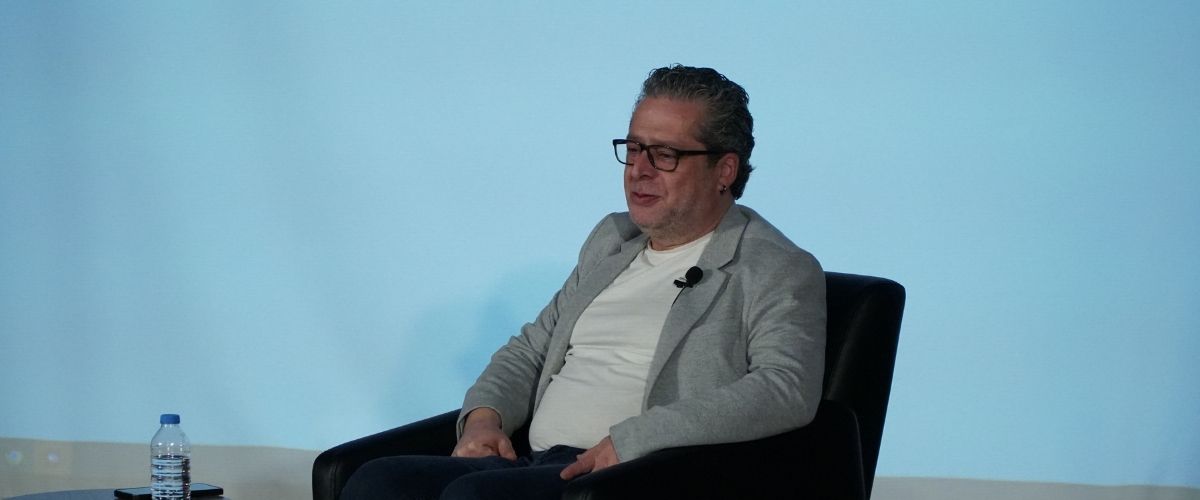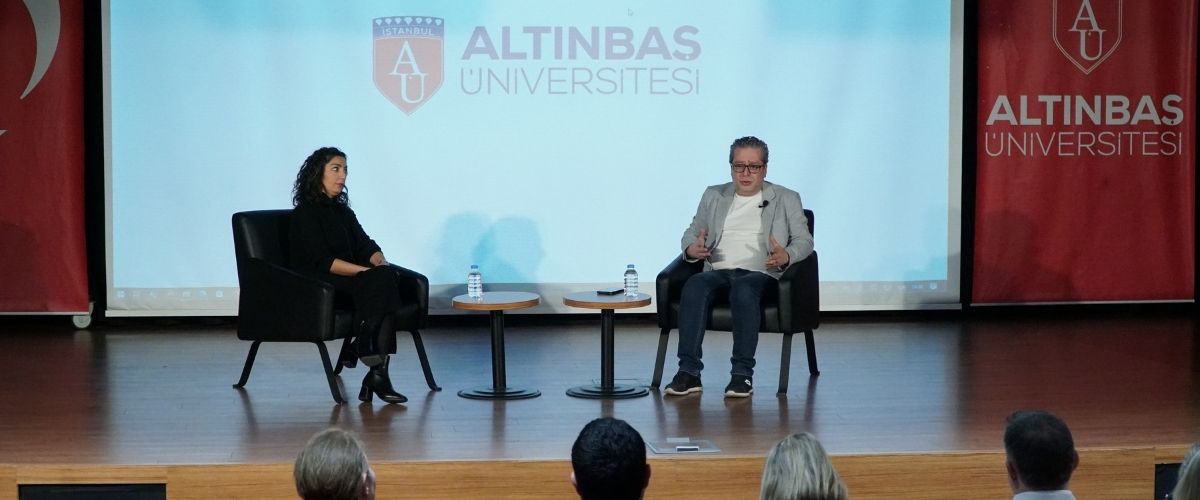Cinema criticism and digital transformation
Assoc. Prof. Dr. Janet Barış, who is a jury member of many world-renowned film festivals including the Golden Globes, took part as a speaker in the talk “Cinema and Film Critics in the World” organized by Altınbaş University Faculty of Communication.
The guest of the talk “Cinema and Film Critics in the World” organized by Altınbaş University Faculty of Communication was Assoc. Prof. Dr. Janet Barış, Head of Cinema and Television Department. Assoc. Prof. Dr. Janet Barış, who is a jury member of many world-renowned film festivals including the Golden Globe, pointed out that criticism in the digital age carries challenges and opportunities together.
Answering the questions of Altınbaş University Faculty Member and Art Historian Assoc. Prof. Dr. Fırat Arapoğlu, who moderated the conversation, Janet Barış explained how digitalization has changed and transformed film criticism. She stated that despite everything, film criticism will continue to contribute to the art of cinema.
Fırat Arapoğlu What is film criticism? How has film criticism changed with the effect of digitalization?
Janet Barış: Cinema criticism has changed a lot over time and digitalization has played a big role in this transformation. For example, I write for Milliyet Sanat magazine, but this magazine is not published on digital platforms.
On the other hand, when I share the same article on social media or online platforms, I can reach a much wider audience.
In the past, movie magazines were quite common in Türkiye; there were Sinema and Altyazı magazines, and even the UK-based Empire and Total Film were published in Türkiye with local teams. But the influence of printed publications gradually diminished. Now we have the internet, but this is also a “vast sea”. When researching a movie, you can come across hundreds of different blog posts. In the past, a critic's article would be published after an editorial process, which provided a standard of quality in terms of professionalism. Now, anyone can write something on the internet.
Fırat Arapoğlu: So, do directors follow critics?
Janet Barış: They definitely do. In the past, magazines were more influential, because when a movie came out, directors were curious to see what the reviews were. And they still care. Also, critics at festivals have a great influence. For example, I am on the pre-selection committee of Adana Golden Boll Film Festival. We select the films to be screened by the main jury. This is a serious responsibility. Last year Nuri Bilge Ceylan was the president of the jury and it was our job to select the films he would watch. This also shows the role of critics in the festival process.
Fırat Arapoğlu: Can film criticism still transform the language of cinema?
Janet Barış: Absolutely. Many movements that changed the history of cinema were based on critics. The French New Wave is one example. The critics who gathered around the magazine Cahiers du Cinéma in the 1960s changed the language of cinema both through their writings and the films they made. Criticism is not only about expressing an opinion on a film, but also a field that moves the art of cinema forward.
Fırat Arapoğlu: How much of your weekly time do you spend watching movies?
Janet Barış: A very big part. On average, I watch 30-40 movies a month, and this number increases during festivals. For example, I am one of the two critics from Türkiye voting at the Golden Globes. It is necessary to watch and evaluate more than 150 films. This process is also mentally exhausting.
Fırat Arapoğlu: What do you think about the hierarchy of festivals?
Janet Barış: Film festivals follow a certain structure in the art world. Big festivals like Cannes, Berlin, Venice are still ahead in terms of prestige. However, local festivals such as the Istanbul Film Festival, Antalya Golden Orange and Adana Golden Boll Film Festivals also attract attention in the international arena. These festivals not only give awards, but also become platforms that shape the direction of cinema.
Especially our Istanbul Film Festival functions as a school. It brings you the classics and trains people.


